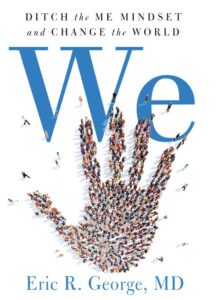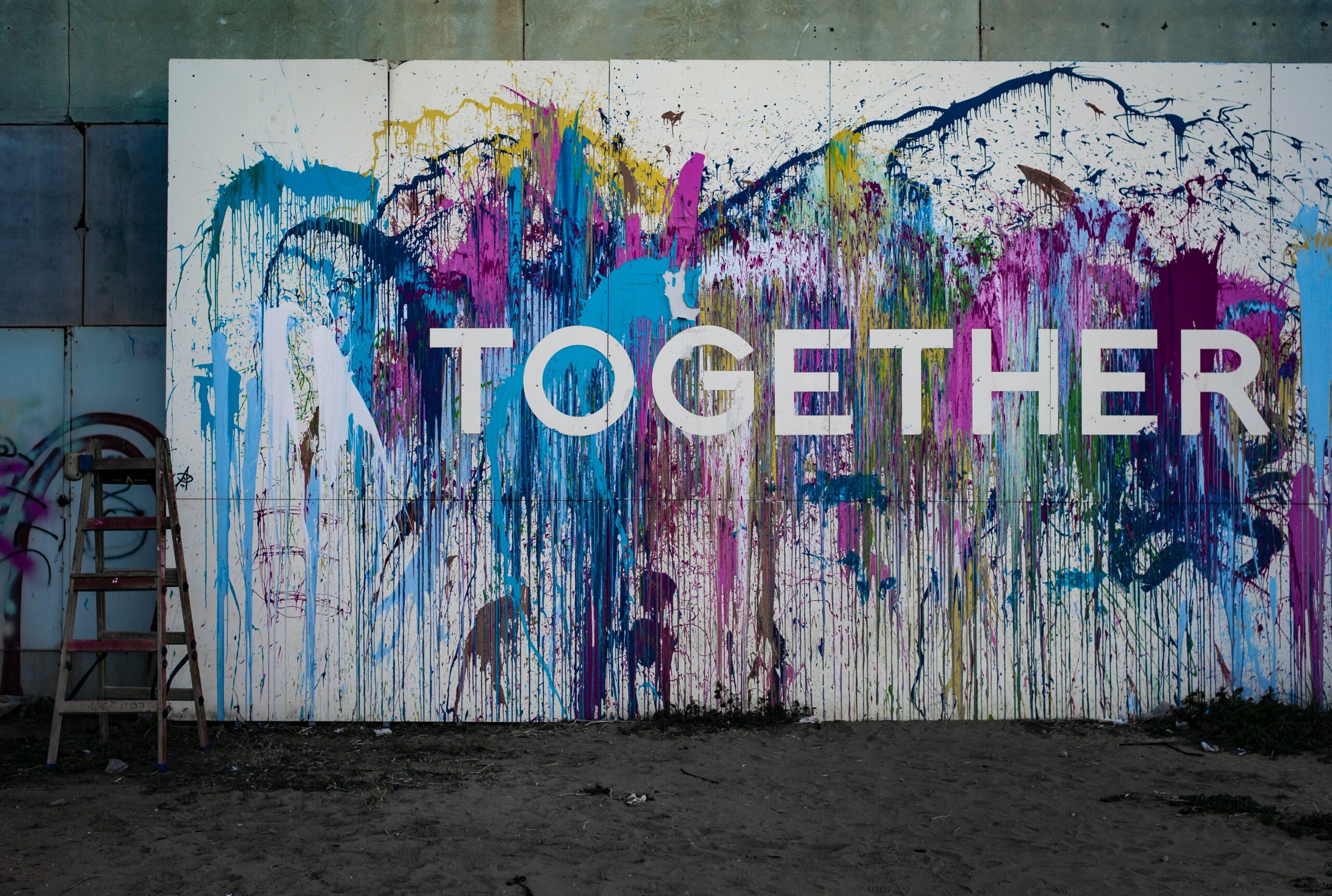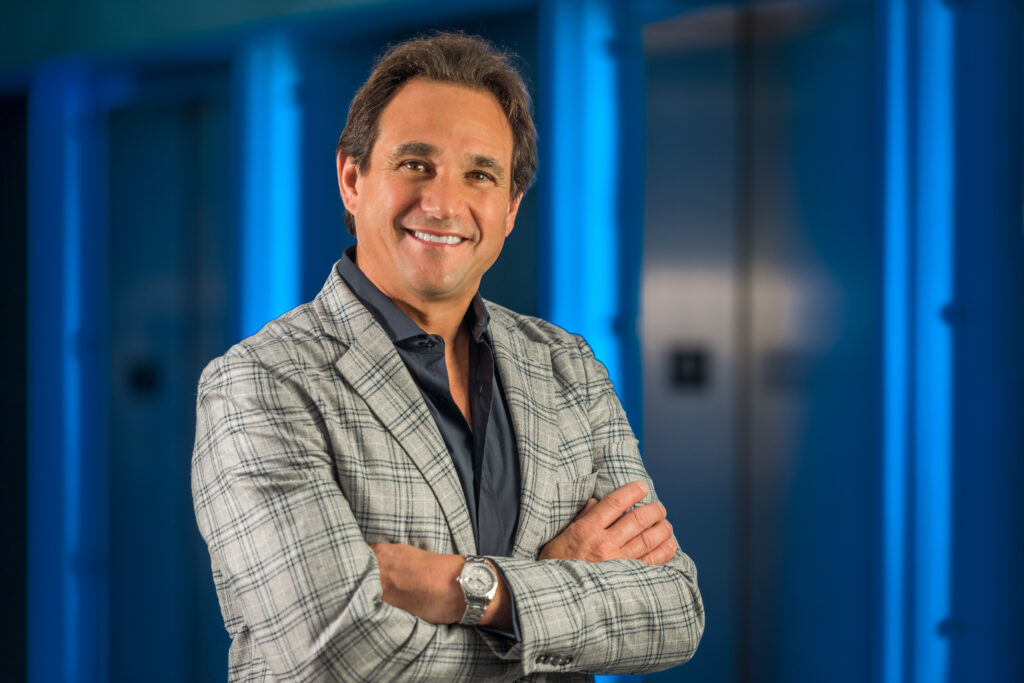Serving Others
Amid the COVID-19 (coronavirus) pandemic, human connection has become one of the most talked-about and controversial topics in our society. Dr. Eric George, a hand surgeon, shares the importance of human connection in his book We: Ditch the Me Mindset and Change the World. He makes the case that our ability to connect with other people serves as the vehicle for living a fulfilling life.
Dr. Eric George is an internationally renowned hand surgeon, serial entrepreneur, investor, philanthropist, and author. He is the founder and CEO of ERG Enterprises, founder and CEO of Hand Center of Louisiana, CEO of Omega Hospital, and chairman of East Jefferson Ambulatory Surgical Center.
Share your view of connectedness and its fundamental importance. How does it change our lives?
Connectedness is a philosophy that has made my life fulfilling, both personally and professionally. The mindset is all about taking an interest in how people are experiencing the world. It’s about trying to understand their perspective, listening to them, learning how you can help them, learning how you can empower them to help you, and learning how together you can accomplish something where everyone wins. It’s a mindset in which you approach every person and interaction with the question, “What can we accomplish together?” And it’s the basis for relationships and achievements that add meaning to life.
You open your book with a compelling overview of the essential role of hands. We are now in the midst of the COVID-19 epidemic. Connecting is radically different and, for instance, we are now told not to shake hands. How does this impact your view?
I have been practicing medicine as a hand surgeon for more than 27 years. What attracted me to hand surgery was the prospect of getting to meet and help a high volume of people. Hand surgery lends itself to connecting with people on a very deep and meaningful level. The hand itself is a piece of anatomy that provides a window into who we are and how we live, including our habits, behaviors, professions, and so forth. And what I’ve learned over my career is the power of human touch. By simply shaking someone’s hand, you create or strengthen your bond with them. It’s a very meaningful form of connecting.
Of course, our current pandemic has fundamentally changed my work and my perceptions of life. Social distancing is necessary. Physical touch is off limits for the foreseeable future. Yet we can’t allow our current state prevent us from engaging in social interaction. Without physical contact, we are left with a void, which we must fill with other forms of connection.
We can connect virtually, but that in-person touch is also part of our human experience. How do we maintain it in a pandemic?
I feel for our ancestors. When you think about what life must’ve been like in 1918 during the Spanish flu, they couldn’t connect without jeopardizing their health and safety. Today, we can’t have physical interaction, yet technology allows us to connect in so many meaningful ways. We can see each other as we talk, FaceTime allows us to do that. We can communicate instantaneously. We can hear each other’s voices. We can laugh, we can cry, we can shout, we can share all those emotions together. Yes, we can’t touch, and no form of connection can replace that. But in a pandemic, what choice do we have? We are adapting to new ways of living, and hopefully they are temporary. We must put a hiatus on physical contact; that’s just the reality.
Connectedness also brings us together and makes us realize we are in it together. Obviously, the current situation does that as well. What good will come from it?
I am always astounded by the resiliency of the human spirit. As a hand surgeon, I work with many trauma cases where people have lost a finger or have their hands severed completely. Their lives are forever changed. Yet, many of these individuals preserve and regain a sense of normalcy. A lot of that has to do with the support system they have in place—their connection to their parents, significant other, or children. The situation also conduces this process. They forget the baggage. They stop caring about life’s uncontrollables. They recognize what’s important. They gain freedom in that regard, which seems to substitute for some of the freedoms they’ve lost.
My belief is that the present crisis will make us stronger by making us closer, more connected. I also believe we will be stronger because we will have a better perspective of what matters and what doesn’t.
You share six fundamental outcomes in this book. Would you share one? Is there one that we struggle with more than another?
Absolutely. I just mentioned one of the six, and that is perspective. We gain perspective not only by experiencing hardship, we also gain it by becoming more connected. And the reason is simple. The more open and committed we are to connecting with others, the more we interact with people who see things differently and have experiences that don’t reflect our own. We gain a more objective view of life by understanding what occurs outside the narrow lens of our own experience. There is incredible power in that.
I don’t see any of the outcomes more difficult. They are all connected, and there isn’t a linear path to making them exist in our lives. Becoming connected with someone is such a personal process that it differs among all of us. That said, there are basic requirements in order to become more connected and begin living the outcomes that I write about. We need compassion, curiosity, gratitude, self-lessness, and empathy.
The last one is trust, and you mention the importance of it for leaders. In your view, how do leaders establish and grow trust?
Trust is one of the most important assets in any organization. In my experience, leaders establish trust by demonstrating their credibility as a leader. They must show they’re capable of leading and growing the organization. I see this as the most foundational condition of trust, because as a leader you’re asking for people to have faith and risk their livelihoods.
Leaders also need to show they care about their employees and are invested in them. And that means spending time and energy learning about them as people and professionals. That means empathizing with their experiences and circumstances. It also means empowering them with responsibilities that carry meaningful consequences to the organization. And last, it means holding employees accountable, telling them when they drop the ball or when their work doesn’t meet expectations. Without this feedback loop, leaders are telling employees they don’t care about their improvement or future, which erodes trust, rather than engenders it.
For more information, see We: Ditch the Me Mindset and Change the World.
DON’T MISS!
Billy Atwell features Skip Prichard on the Unshakeable Confidence podcast.
Photo Credit: Adi Goldstein


